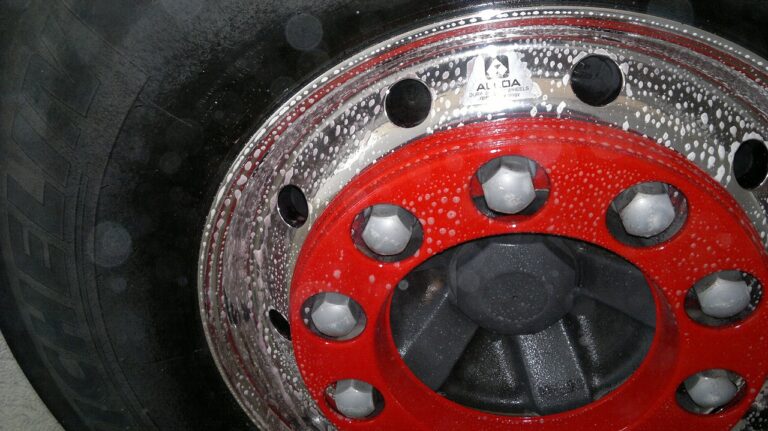Industry Insights: Strategies for Improving Tire Manufacturing Supply Chain Resilience
betbhai book, cricbet99 login, diamondexch9 login:Industry Insights: Strategies for Improving Tire Manufacturing Supply Chain Resilience
In the world of tire manufacturing, having a resilient supply chain is crucial for success. With increasing competition, fluctuating raw material prices, and global market disruptions, it’s more important than ever for companies in this industry to enhance their supply chain resilience. In this article, we’ll explore key strategies that tire manufacturers can implement to improve their supply chain resilience and ensure their operations remain robust in the face of challenges.
1. Build Strong Relationships with Suppliers
One of the foundational elements of a resilient supply chain is strong relationships with suppliers. By nurturing partnerships with key suppliers, tire manufacturers can enhance communication, collaboration, and trust. This can lead to better visibility into the supply chain, improved risk management, and quicker responses to disruptions.
2. Diversify Suppliers and Raw Materials
To mitigate the risk of supply chain disruptions, tire manufacturers should consider diversifying their supplier base and raw materials sources. By spreading risk across multiple suppliers and sources, companies can reduce their vulnerability to disruptions caused by factors such as natural disasters, geopolitical conflicts, or market fluctuations.
3. Invest in Technology and Automation
In today’s digital age, technology and automation play a vital role in improving supply chain resilience. Tire manufacturers can leverage technologies such as AI, IoT, and data analytics to enhance visibility, efficiency, and decision-making in their supply chains. By investing in automation, companies can also streamline processes, reduce lead times, and improve overall resilience.
4. Implement Lean Manufacturing Principles
Lean manufacturing principles focus on minimizing waste, improving efficiency, and optimizing processes. By implementing lean practices in their operations, tire manufacturers can increase agility, reduce costs, and enhance flexibility in their supply chain. This can help companies respond more effectively to disruptions and adapt to changing market conditions.
5. Develop Contingency Plans
It’s important for tire manufacturers to have robust contingency plans in place to address potential disruptions in their supply chain. By developing contingency plans for various scenarios, companies can proactively mitigate risks, minimize downtime, and ensure business continuity in the face of unforeseen events.
6. Collaborate with Stakeholders
Collaboration with stakeholders such as customers, suppliers, and industry partners is key to improving supply chain resilience. By working closely with stakeholders, tire manufacturers can share information, resources, and best practices to enhance the overall resilience of the supply chain. This collaborative approach can help companies build a more integrated and responsive supply chain network.
7. Monitor and Evaluate Performance
Continuous monitoring and evaluation of supply chain performance is essential for identifying areas of improvement and enhancing resilience. By tracking key performance indicators, analyzing data, and conducting regular reviews, tire manufacturers can identify vulnerabilities, optimize processes, and strengthen their supply chain resilience over time.
FAQs:
Q: How can tire manufacturers ensure compliance and sustainability in their supply chain?
A: Tire manufacturers can ensure compliance and sustainability in their supply chain by implementing strict quality control measures, conducting audits of suppliers, and adhering to environmental regulations and industry standards.
Q: What role does risk management play in improving supply chain resilience?
A: Risk management is essential for improving supply chain resilience as it helps companies identify potential risks, assess their impact, and develop strategies to mitigate them. By effectively managing risks, tire manufacturers can enhance their ability to respond to disruptions and safeguard their operations.
Q: How can tire manufacturers leverage data analytics to enhance supply chain resilience?
A: Tire manufacturers can leverage data analytics to gain insights into their supply chain operations, identify patterns, trends, and potential risks, and make informed decisions to optimize their processes and enhance resilience. By analyzing data, companies can also improve forecasting accuracy, reduce lead times, and enhance overall supply chain efficiency.
In conclusion, enhancing supply chain resilience is critical for tire manufacturers to navigate the challenges of today’s fast-paced and unpredictable business environment. By implementing strategies such as building strong relationships with suppliers, diversifying sources, investing in technology, and developing contingency plans, companies can strengthen their operations, mitigate risks, and ensure their supply chain remains resilient and adaptable in the face of disruptions. By adopting a proactive and collaborative approach, tire manufacturers can position themselves for long-term success and competitiveness in the industry.







